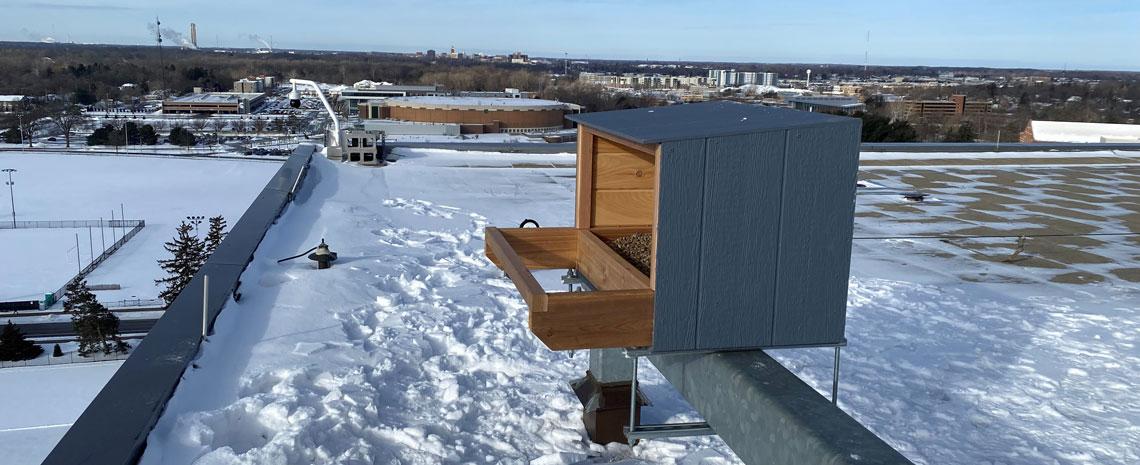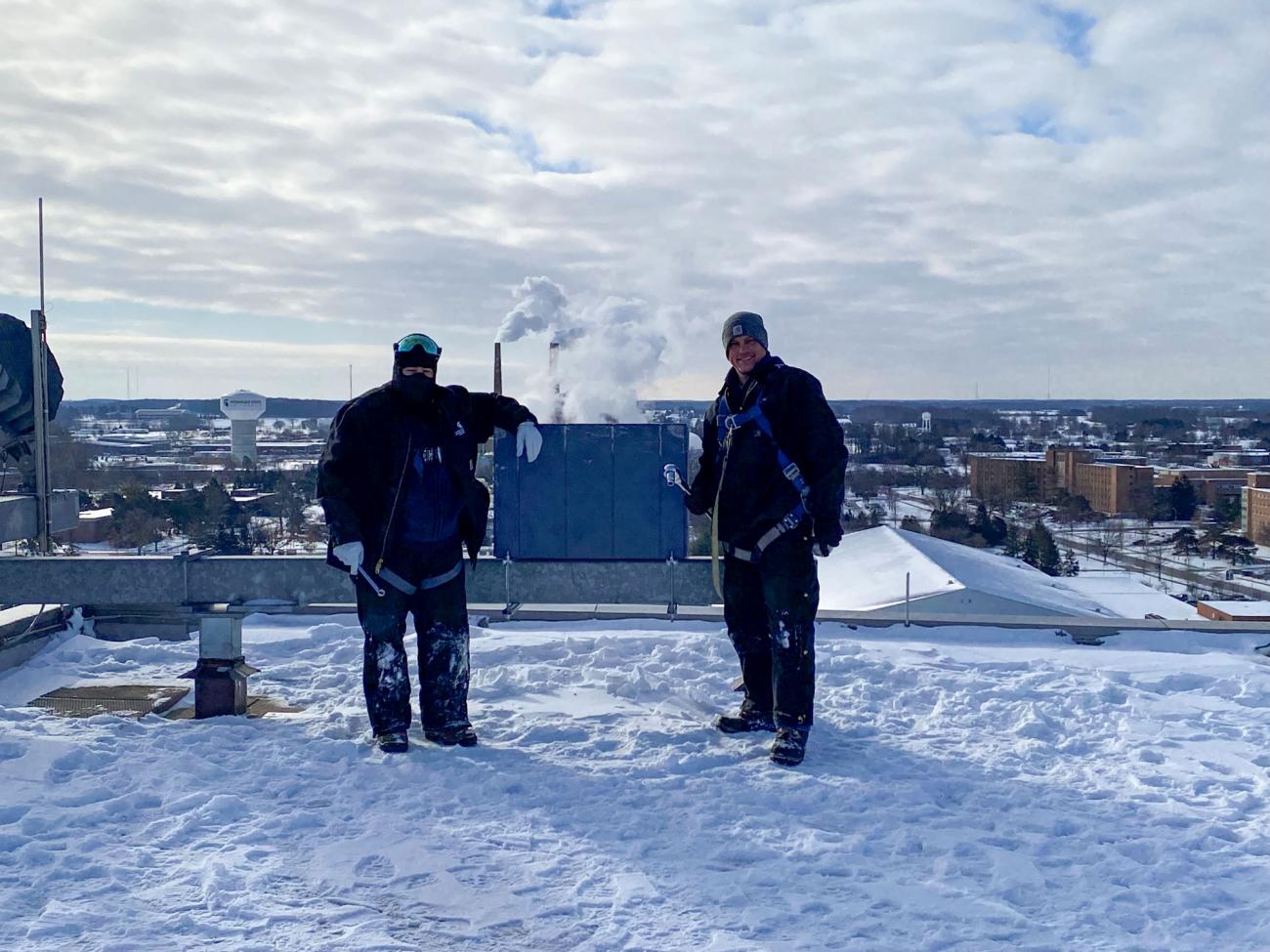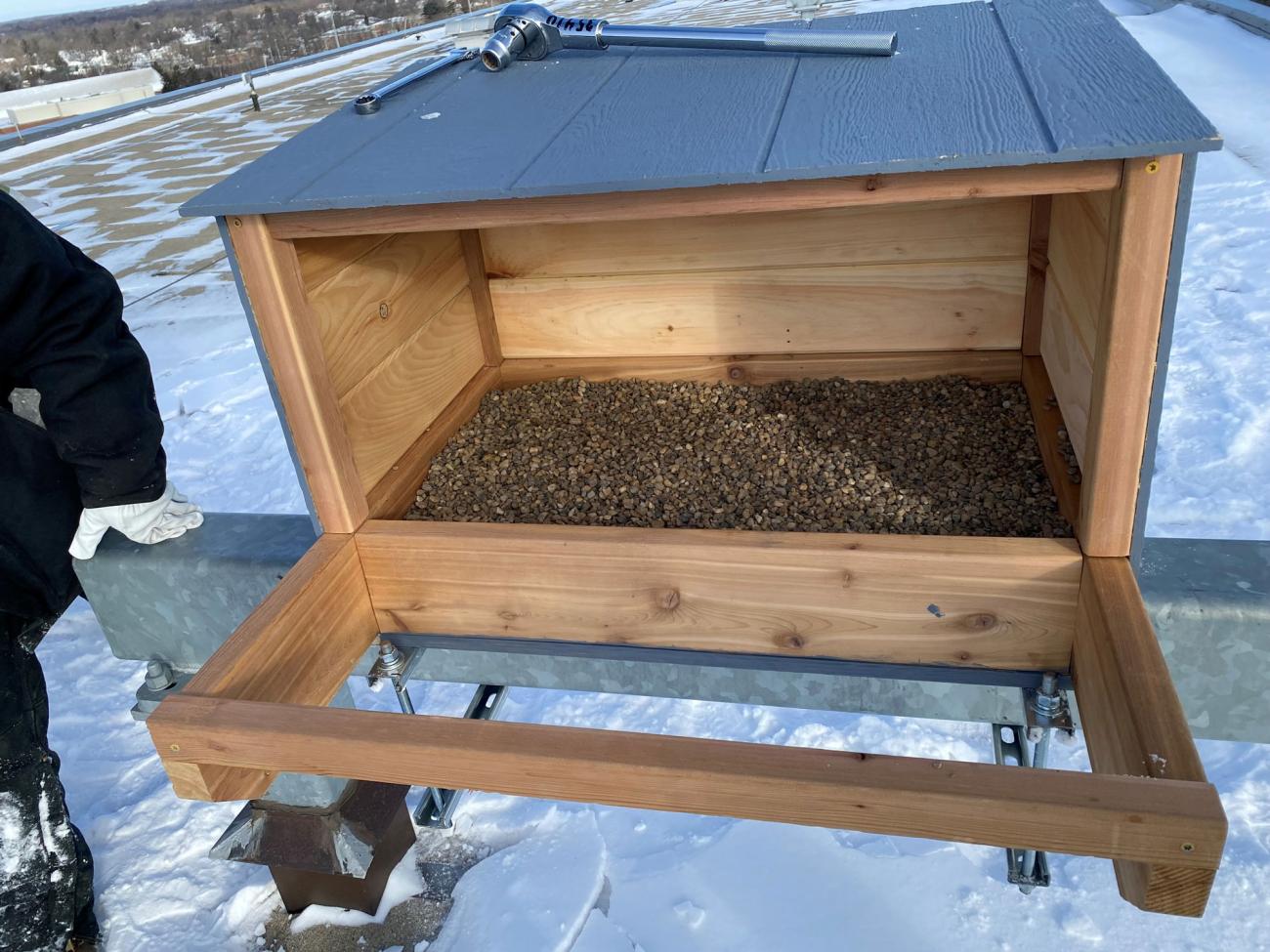Making a home for falcons at Spartan Stadium

Danielle Fowler
February 24, 2022
Editor's note: the falcon live feed is now available on the Fisheries and Wildlife Club YouTube channel.
A pair of nesting peregrine falcons at MSU's East Lansing campus have a new place they could call home thanks to the work of the student Fisheries and Wildlife Club with a little help from Infrastructure Planning and Facilities (IPF).
"We've known that there were falcons around the university for a while," said Juhi Parekh, a senior fisheries and wildlife major and former Fisheries and Wildlife Club president. "They've been returning year after year for over five years now."
The Fisheries and Wildlife Club helped construct a nesting box in the east neighborhood but the birds never took to it.
"When we realized the falcons weren't using the nest, we thought about where they've already been seen," said Parekh. "We noticed that they've been hanging out at Spartan Stadium, so we reached out to the stadium staff and they confirmed it."

The two falcons spend a lot of time at Spartan Stadium where large numbers of pigeons, favored prey for falcons in urban areas, roost.
Knowing that, the club reached out to IPF to help build and install a new nesting box on top of the Spartan Stadium press box. IPF collaborated with the club in 2021 to convert unused land into a native prairie with plenty of plants for pollinators.
"We've been trying to get this up as soon as possible because the falcons return in February to look for a nesting site and begin their courtship," said Evan Griffis, a junior fisheries and wildlife major, and Fisheries and Wildlife Club chair. "If you disrupt the area when they've already started nest searching, it can spook them. Having it in place before they get here is really important."
The box, installed by IPF's Ray Dancer, Matt Vohwinkle and Jake Hengstebeck, is made of pine and contains only a few inches of pea gravel at the bottom.
It seems a bit sparse for a nest, but Griffis explained the reasoning behind the construction.

"Peregrine falcons are cliff nesters," he said. "They make what's called a scrape, where they sit on a gravel substrate, kick with their feet a little bit, and make a depression in the gravel. That's where they lay their eggs. It's pretty unique."
Peregrine falcons are an endangered species in Michigan, but their numbers are on the rise thanks to projects like these that provide safe nesting sites.
"I'm hoping that other universities or urban centers will take notice of this and realize that urban wildlife really is in your backyard, even if you don't realize it," said Molly Engelman, fisheries and wildlife junior, and Fisheries and Wildlife Club president. "It's up to us to notice it and care about it and do something about it."
The MSU community has already funded a live webcam which will be installed close to the nest in the near future. The livestream will allow Spartans, and others around the world, to keep an eye on the stadium's falcon family.
